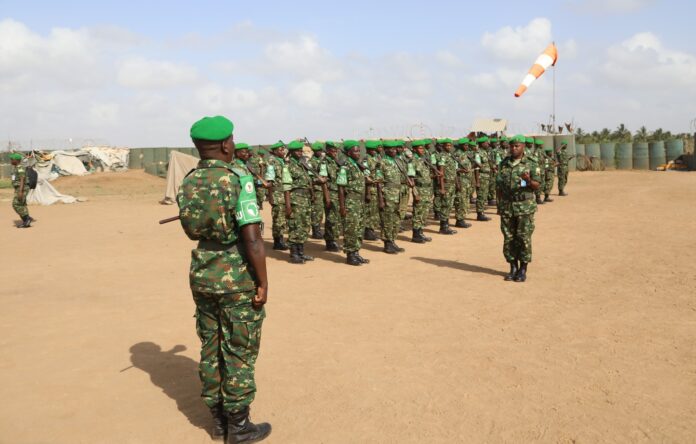MOGADISHU (Kaab TV) – The United Nations Security Council has authorized a new African Union mission in Somalia (AUSSOM) aimed at combating the spread of terrorist groups, including Al-Shabaab.
The new mission will also play a critical role in ensuring the delivery of humanitarian aid across the country.
The draft resolution for AUSSOM was tabled by the United Kingdom, which acts as the penholder for Somalia at the UN Security Council.
The resolution, adopted on Friday, allows for the deployment of up to 12,626 personnel to assist in counter-terrorism operations and stabilize the Horn of Africa nation.
AUSSOM is set to replace the existing African Union Transition Mission in Somalia (ATMIS), which evolved from AMISOM after its initial deployment in 2007.
Somalia is still deciding which countries will contribute troops to the new mission.
Tensions between Ethiopia and Somalia over access to the Red Sea have added complexity to these discussions.
Ethiopian forces are reportedly excluded from the mission, with reports suggesting Egypt, a regional rival of Ethiopia, has announced plans to participate in AUSSOM, which is set to launch in January 2025.
Somali National Security Adviser Hussein Sheikh Ali addressed the issue, stating, “Somalia is actively engaging with the AU and potential troop-contributing countries (TCCs) for AUSSOM.
The mandate of AUSSOM allows the Federal Government of Somalia (FGS) to determine TCC participation.
A decision will be announced soon, aligning with our national priorities. The spirit of the Ankara Declaration remains strong and alive.”
The Ankara Declaration, signed earlier this month in Turkey, marked a step toward easing tensions between Somalia and Ethiopia.
Relations between the two nations were strained after Addis Ababa signed a memorandum of understanding with Somaliland earlier this year to access the Red Sea, an agreement Mogadishu deemed a violation of Somalia’s sovereignty.
Turkey, with strong ties to both countries, facilitated the agreement.
Meanwhile, local skepticism about AUSSOM remains high. Many Somalis doubt the effectiveness of ATMIS and fear the new mission may face similar challenges, including divisions between the Federal Government in Mogadishu and regional states.
These internal conflicts could hinder the mission’s operations and further complicate the country’s fragile security situation.
The international community is hopeful that AUSSOM will bolster efforts to combat terrorism and support Somalia’s stabilization, but success will depend on overcoming both local and regional challenges.


